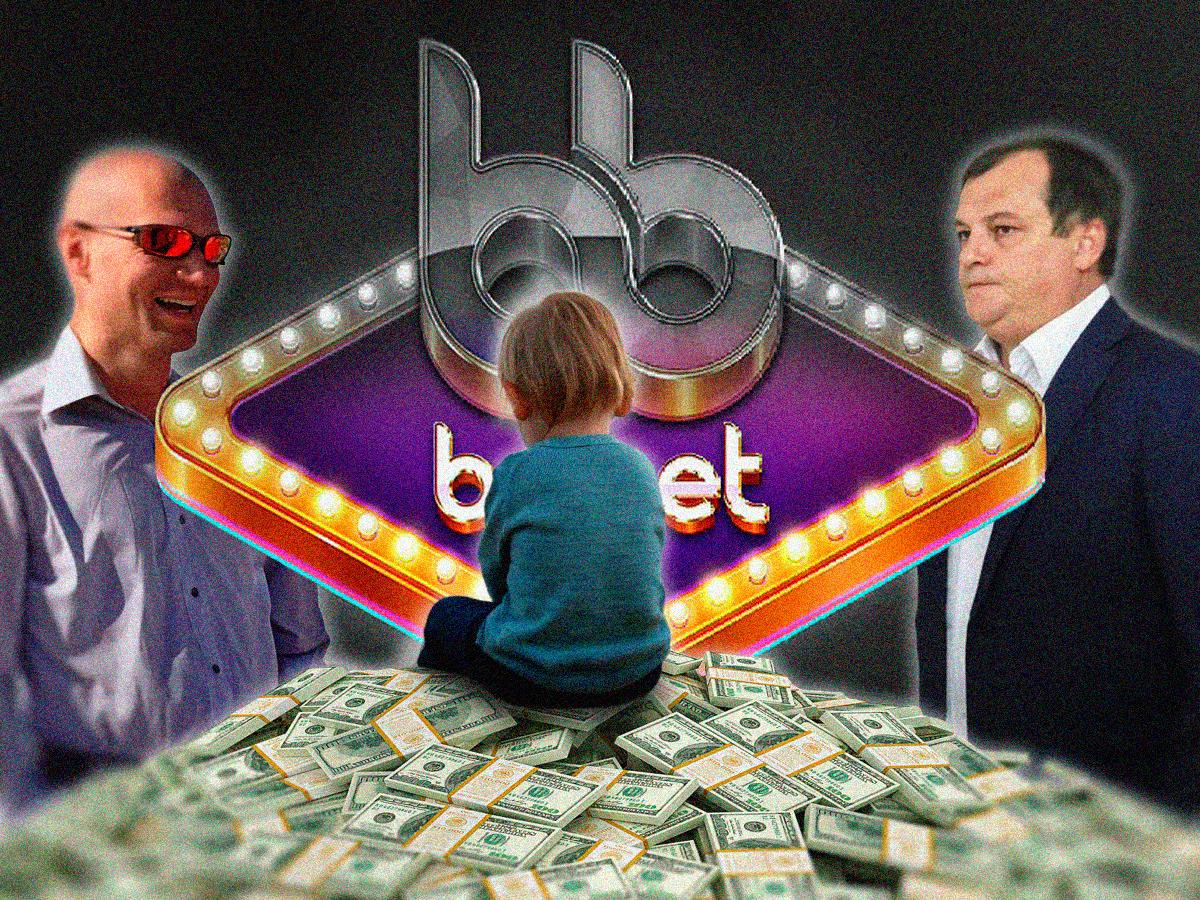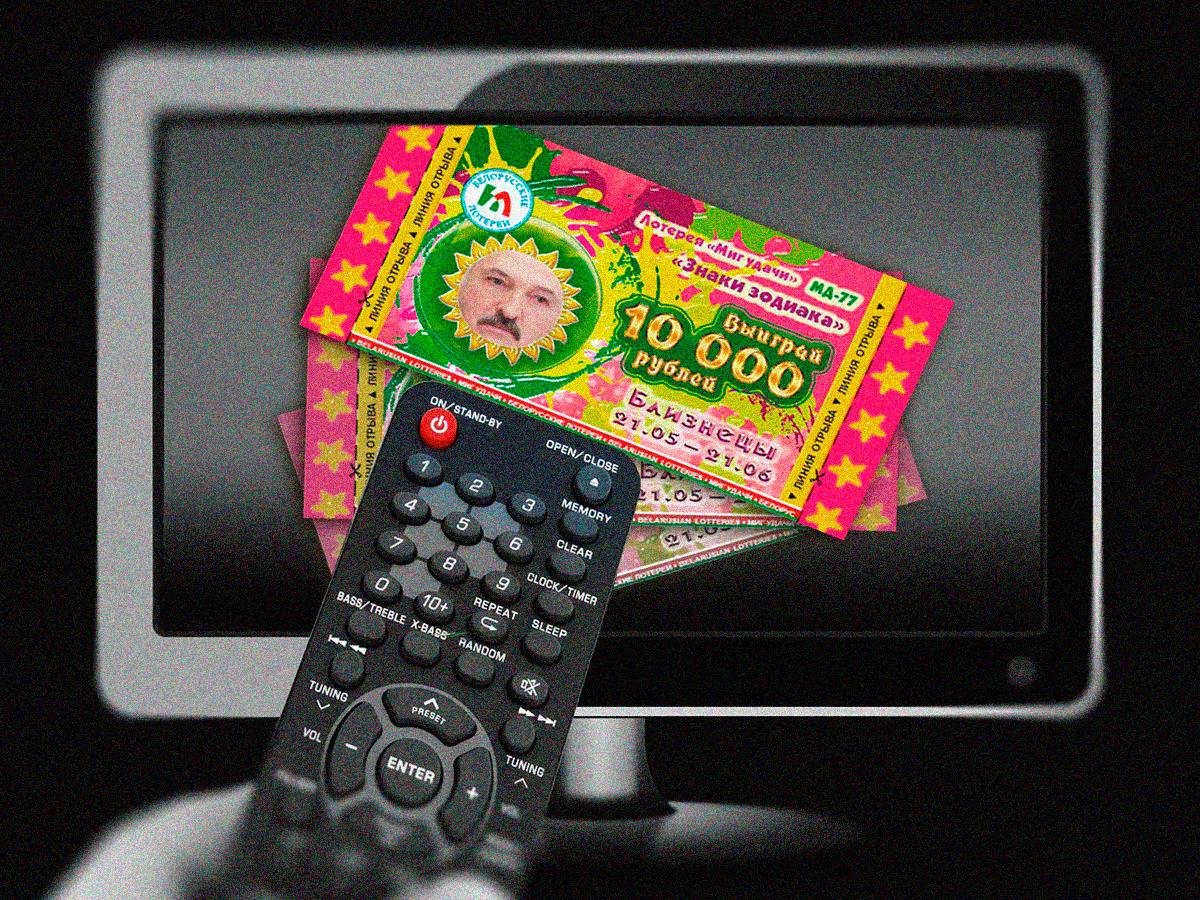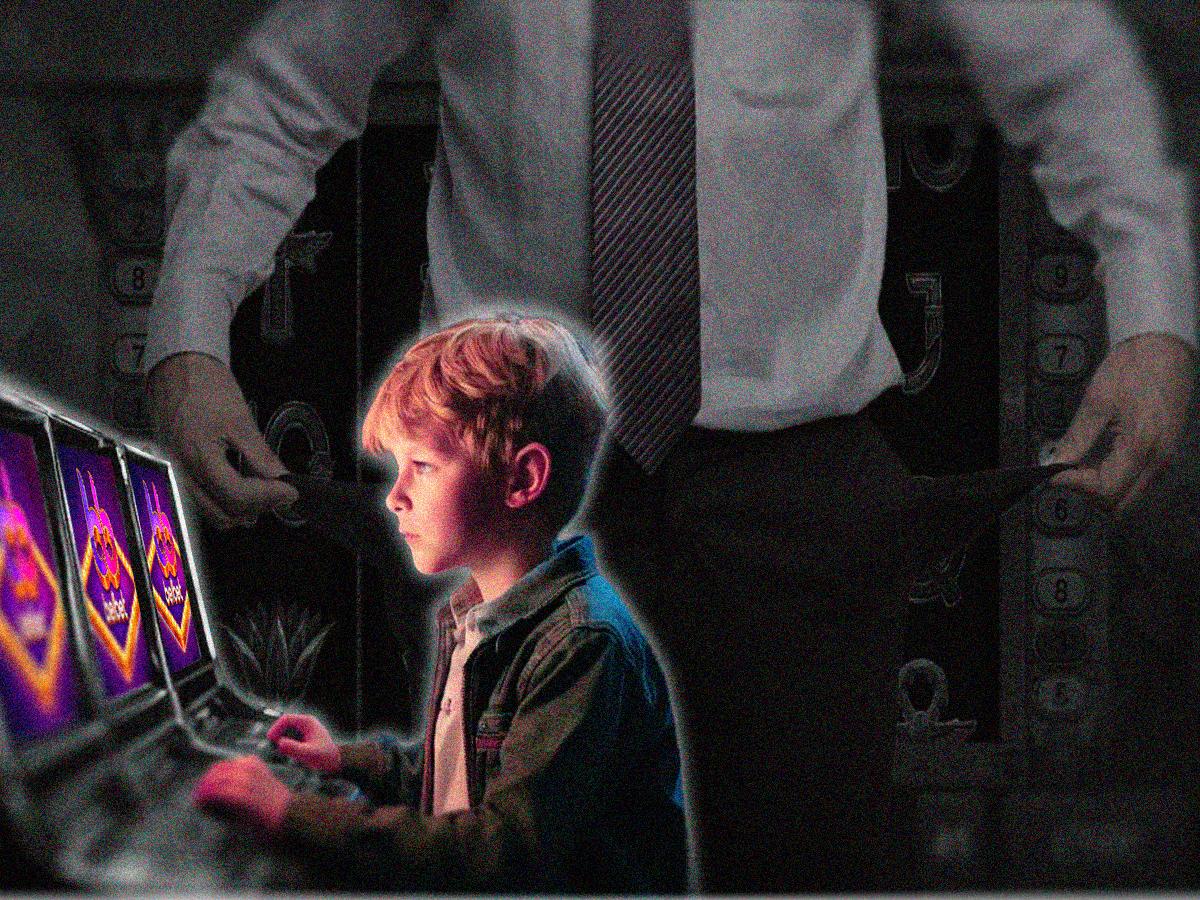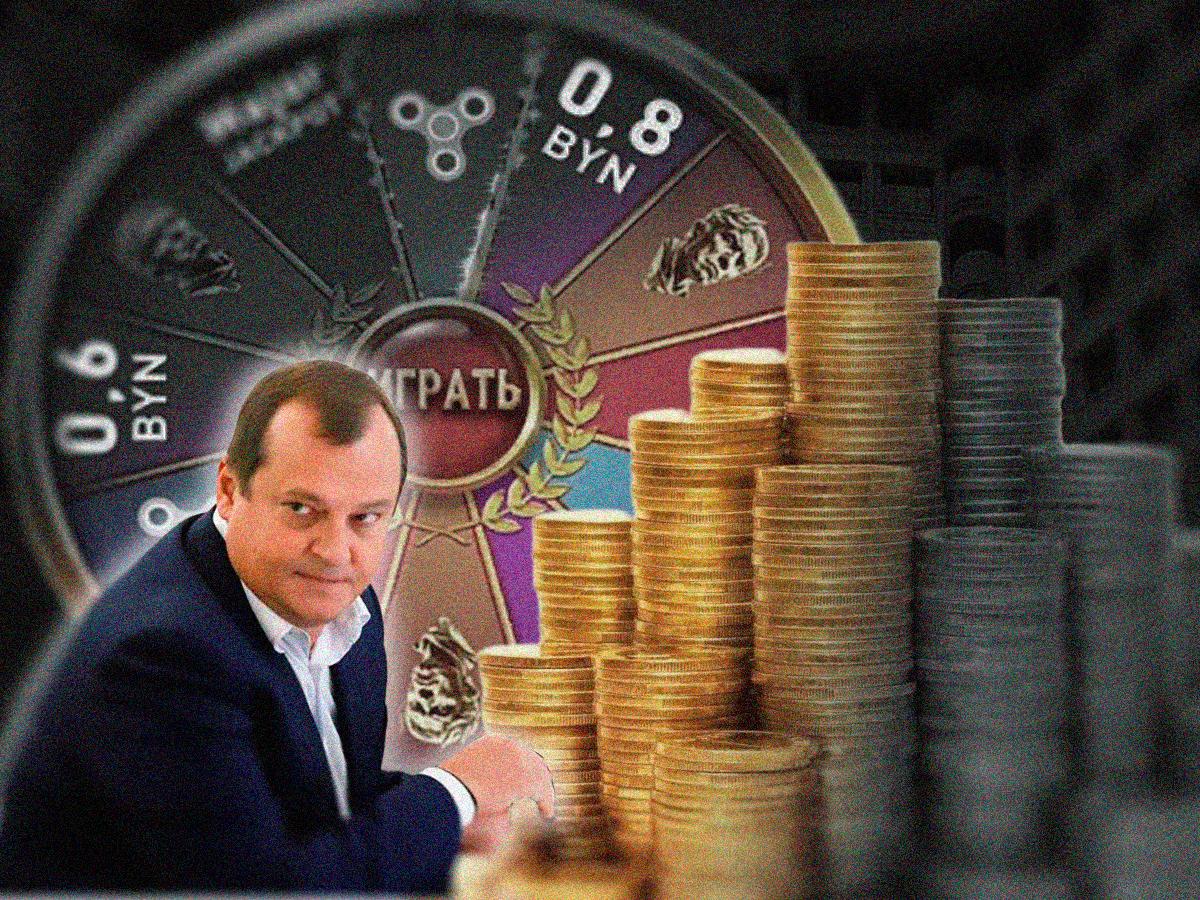The investigation reveals how Belarus's state-run online lottery Belbet effectively operates as an unregulated online casino, allowing minors to gamble without proper age verification. Here are the key findings:
Main Issues:
- Belbet operates under lottery laws to avoid stricter casino regulations
- Unlike licensed casinos, Belbet doesn't verify players' age or identity
- Minors can easily access the platform by simply checking a box claiming they're 18
- Parents cannot recover money lost by their children
Key Players and Beneficiaries:
- Belbet is owned by RUP Belorusskiye Loterei, controlled by the Presidential Property Management Department
- Software is developed by Ridotto (formerly Synesis Loto), connected to sanctioned individuals
- Links to Aliaksei Aleksin (known as the "tobacco king") and other sanctioned businesspeople were uncovered
Financial Scale:
- In 2023, the target revenue was over $1.8 billion
- Belbet represents 99.8% of Belorusskiye Loterei's revenue
- Funds are used for various state projects, including some linked to sanctioned individuals
Expert Opinions:
- Psychologists warn about increased addiction risks, especially for teenagers
- Legal experts note this setup is unusual compared to international standards
- Industry sources confirm Belbet deliberately avoids casino regulations while operating like one
This investigation highlights how Belarus's authorities profit from gambling addiction while bypassing protective regulations that apply to regular casinos, putting vulnerable populations, especially minors, at risk.
This piece was prepared with the support of the activist group CyberPartisans in partnership with the Belsat TV channel.
“Hi, this is tech support. My name is Dzmitry.”
“Hi. My child transferred money to you. He says he can't withdraw it. He lost it. What should we do now?"
“Bet refund is impossible.”
This dialogue was between a customer support operator for the Belarus national online lottery Belbet and a BIC journalist. She introduced herself as the mother of a minor who had lost money. This is a made-up situation. But it does illustrate a real problem that families in Belarus face.
Special Status
In Belarus, only the government has the right to run lotteries. Two public organizations do this. One of them is RUP Natsionalnyye Sportivnyye Loterei (a republican unitary enterprise under the laws of Belarus). The second is RUP Belorusskiye Loterei (a republican unitary enterprise under the laws of Belarus). The latter is owned by the Presidential Property Management Department (PPMD) and runs 17 out of 25 of the existing lotteries. [*] [*]
Belbet is Belorusskiye Loterei's main source of income. According to the official version, it was established in 2019 to raise additional funds for the development of environmental institutions and sanatoriums controlled by the PPMD and for "other purposes."
That same year, online casinos were legalised in Belarus. Since then, anyone wishing to open a virtual gambling establishment must obtain a license. This same law tightened requirements for the gambling business overall.
Belbet's online games imitate the most popular type of casino machine: slot machines. The website and online lottery app offer over 50 such games, one of which is called One-Armed Bandit. Despite that, Belbet is not subject to casino restrictions since it is officially a lottery.
Cover-up and disguise
"If it looks like a duck, swims like a duck, and quacks like a duck, then it's probably a duck. Right? Well, here's the same thing: it looks like an online casino, but it works like a lottery," a source from the Belarusian gaming industry told the BIC. (The source chose to remain anonymous for security reasons.)
According to this source, other participants in the gambling market tried to figure out what regulations govern Belbet activities and why restrictions for casinos do not apply to what is essentially a casino: "Behind the scenes, in the corridors of power, timid voices were raised: ‘How is that possible? Well, after all, it's an online casino’. We were told everything was fine and we shouldn't ask unnecessary questions. Well, we don’t ask.”
Belbet has several reasons for faking an electronic lottery. To open a casino in Belarus – both online and offline – you need to get a license and meet several requirements. These include a mandatory deposit of about a million dollars on a special account in case the organizer cannot pay off the players or the government.
A gaming industry representative suggested to BIC it is advantageous to present Belbet as a lottery due to the peculiarities of the taxation and control system. One of the features of casino regulation is the required age limit. Players under 21 are not allowed to play slot machines, either online or offline. The casinos are responsible for monitoring this. The law also states that the casino organizer is obliged to identify players. There is no such requirement for lotteries.
Whatever keeps the child happy?
"The user guarantees, confirms and agrees that they are a resident of the Republic of Belarus ... and is over 18", the Belbet rules state. This is the only obstacle the organizers have put in for minors.
The same rule is stated on the lottery website. We were told the same by the Belbet support service, when the BIC journalist contacted it under the guise of a mother of a child who had lost money. She asked the operator how a minor could be allowed to gamble. The operator explained:
“Registration is confirmed by phone number. When registering, the child indicates – like any other person – that they are familiar with the public agreement, which confirms they are 18 years old. In that case, if they marked all these boxes, they could sign up.”
"So you don't check anything, and in the end, it's the child's fault?"
“He confirmed he is 18. Therefore, all responsibility falls either on his parents or him."
Players raise this problem of easy access for minors to play for money in comments on various rating services. [*] [*] [*] [*] You can also find real stories: parents tell how their children registered with Belbet and lost money. [*] [*] We cannot verify the authenticity of these reports.
A BIC journalist was told by a customer service operator if it was not possible to get a refund for money a minor had lost at Belbet:
"Well, of course, you can file a complaint. And again, I repeat, it is impossible to refund money for bets, or rather not for bets, but for the game. At the legislative level."
By the letter of the law
According to Belarusian law, the lottery is excluded from the definition of gambling, a lawyer for the National Anti-Crisis Management Mikhail Kirilyuk told BIC.
"Of course, this application, its design, and the game's mechanics look like a gambling (game). As a lawyer, I can conclude that technically, based on its characteristics and criteria, it can be called an online casino and has every reason to be so. However, for some other reasons not related to the nature of the business, they have decided to exclude this service from this regulation," he said.
According to Kirilyuk, in most jurisdictions where online casinos are permitted, online casinos and online lotteries are subject to the same set of gambling regulations. He added that he was unfamiliar with any practice in which a person is allowed to play for real money simply by checking a box that they are 18 years old. He stressed that a situation where a participant in the gaming market makes the rules is abnormal. The government owns Belbet and creates laws that give Belbet an advantage over its competitors.
"If we see, for example, that beer from a certain manufacturer in a certain country has been taken off the list of alcoholic beverages and called a recreational drink and allowed to be sold at night near a school without requiring identification, there should be some corruption involved, some kind of non-market preferences for one player,” Kirilyuk said.
To compare the difference in access difficulty between Belbet and its competitors, we tried to register without a passport and age verification in two Belarusian online casinos. It did not work: You can only register in these systems by uploading photos of your passport and a selfie holding it. Without this, it is impossible to make an account deposit and start playing. [*] [*] [*] [*]
Belsat wrote that the idea of identifying lottery participants was discussed at the government level. However, Belbet's owner – Belorusskiye Loterei – slammed this initiative. They say this would limit the number of players and, therefore, the profit. There is no need to fight gambling addiction in this way, Belorusskiye Loterei stated, since only 16 people out of almost a million registered have contacted them with complaints in this regard over three years.
"The statistics (on the number of gambling addicts in Belarus) do not exist. This is one of the indicators of the state of society. (These statistics are hidden) just like statistics on mortality, migration and so on," psychologist Natalia Skibskaya told the BIC.
Games of (in)dependence
The tax service overseeing activities of lotteries and casinos warns of the dangers of gambling addiction. A person can get a prohibition issued to keep them from visiting gambling establishments and participating in gambling. To do this, they must apply for inclusion in a special list of people prohibited from visiting gambling establishments, including virtual ones. The court may impose similar restrictions. In 2019, there were over 17,000 people on these lists. A player identification system is required for this to work.
The World Health Organization has included video and digital gaming addiction in the International Classification of Diseases. Ludomania (gambling addiction) is the only behavioural addiction that has been classified as a mental disorder.
"The availability of specific substances or objects of addiction increases the chance (that a person will use them) simply because they can be used. And the shorter the route, the easier it is to use them. In this regard, of course, all sorts of online things are more dangerous than (going to) a physical casino. The easier it is to access, the easier and faster gambling addiction develops," said the psychologist Skibskaya, adding that if the government promotes the game, people get the impression that there is control over it that makes it safer.
Adults find it challenging to resist gambling, and children may find it even harder to avoid gambling addiction. Psychologist Anna Tamilina told BIC that areas of the brain, including the prefrontal cortex that controls and plans consequences, are still developing during adolescence. The dopamine system, which is responsible for receiving pleasure, and volitional (decision-making) processes are also just forming in teenagers, she added.
“Even understanding the whole logic of how this game (works): that it gets you involved, that it entices you, that it is detrimental to your health … (when a child sees) an advertisement for an online casino, they simply have an impulse – ‘I want it. I want to get this dopamine bomb. I want to have loads of fun now.’
“If we look at all these casino ads, we see how well they are made, how catchy they are."
Where lottery money goes
Belsat wrote in April 2024, citing data from leaked documents provided by the BelPol association, that the Belbet electronic lottery accounts for 99.8% of Belorusskiye Loterei's revenue. In 2023, Belorusskiye Loterei targeted more than 6 billion rubles (over $1.8 billion) in revenue.
We do not know whether they reached that goal. Government agencies do not publicly report how much they earn from lotteries and how they spend it. In 2023, funds received by Belorusskiye Loterei could be used to finance projects related to Aleksandr Lukashenko and his inner circle. There was discussion about supporting Aliaksei Talai, a pro-government activist and Paralympic athlete who the EU and the US sanctioned in February 2024 for participating in Ukrainian children deportation. BIC published an investigation into this. According to Belsat, money from lotteries may have been used to build a potato storage facility and to help sambo wrestlers.
Earning on Excitement
It's not only the Presidential Property Management Department that makes money on Belbet. Another beneficiary is a company that the European Union has sanctioned for developing the Kipod facial recognition and tracking system for the Belarusian authorities. This is OOO Synesis (a limited liability company under the laws of Belarus), which has been developing software for Belbet since 2019. [*]
In February 2020, OOO Synesis Loto was spun off into a separate company and later renamed OOO Ridotto (a limited liability company under the laws of Belarus). [*] This company "extends support for developing a software package for organizing" Belbet games. It will own the rights to the online lottery logo until at least 2031. [*] [*] [*] A description on the company's website in 2023 stated that it operates in the CIS (now Belarus, Russia, Moldova, Azerbaijan, Armenia and five Central Asian nations) and other countries, where it produces software for organizing and running lotteries.
As of early December 2024, Ridotto was owned by Russians Petr Shatrov and Nikolai Ptitsyn and Belarusian Dzmitry Shviadko. In 2020, the company had another co-owner – Petr Shatrov's brother Alexander. [*] The European Union and the United States imposed sanctions against him for developing the Kipod system, which helped the Belarusian state apparatus "in suppressing civil society and the democratic opposition".
In 2016, the wife of Aliaksei Aleksin, a Belarusian businessman referred to by the media as the "tobacco king", was one of the Synesis founders. The EU sanctioned Aleksin as an associate of Lukashenko. Also in 2016, Aleksins's company, Energo Oil Invest, became a shareholder of Synesis. [*] [*] [*] [*]
Since 2018, Synesis has received large government contracts. One of its subsidiary companies became the technical operator of the Facial Recognition and Tracking System, and another acted as the developer of electronic seals installed on transit trucks in Belarus. Developing software for Belbet became another major contract for Synesis. [*] [*] [*] [*] [*]
BIC has sent information requests to RUP Belorusskiye Loterei, the Ministry of Finance, and the Ministry of Taxes and Duties, asking the authorities to explain if it is legal for Belbet not to verify the age of players, and why Belbet is called an online lottery if the mechanics of the games are essentially the same as online casino games. BIC also inquired about the revenues generated by RUP Belorusskiye Loterei and specific projects to which the money generated is allocated.







